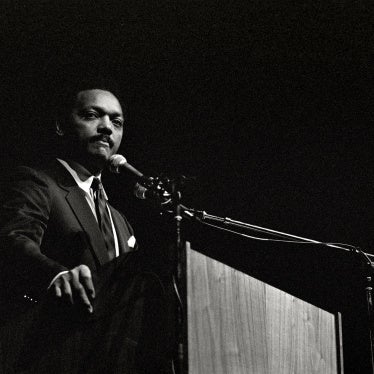A presidential election is being held tomorrow in which one of the leading candidates stands accused of genocide. Efrain Rios Montt, a retired general, is seeking the presidency of Guatemala. In the early 1980s he headed a military regime that carried out hundreds of massacres of unarmed civilians and -- according to a U.N.-sponsored truth commission -- "acts of genocide."
Now Rios Montt is attempting to return to power, and as part of his campaign has even displayed a picture of himself with Ronald Reagan that was taken in the '80s. The U.S. Embassy has pointed out that this photo was taken in a different context, and indeed it was. The context was the Cold War, and the Reagan administration, concerned about leftist insurgencies in Central America, was seeking congressional approval to restore direct military aid to Guatemala. Reagan posed with Rios Montt, praised him as "a man of great personal integrity" who was "totally dedicated to democracy," and dismissed charges of atrocities in Guatemala as a "bum rap."
As Reagan spoke, Rios Montt's troops were preparing to march on a village called Las Dos Erres for a counterinsurgency operation that was to include the rape of young women, smashing of infants' heads and the interment of more than 160 civilians -- some while still alive -- in the village well.
Now the skeletons have been exhumed from the well in Las Dos Erres, as well as from hundreds of other clandestine cemeteries scattered throughout the countryside. A truth commission has documented tens of thousands of abuses committed by the Guatemalan state, as well as a much smaller number committed by leftist guerrillas. And in 1999 President Clinton issued a public apology in Guatemala for the U.S. role in supporting that country's abusive regimes.
The apology came backed by aid -- millions of dollars that the U.S. government has invested in efforts to promote the rule of law in Guatemala, including the truth commission, an extensive U.N. peacekeeping mission and the litigation of human rights cases.
And what does Guatemala have to show for these efforts? Only two major human rights cases have resulted in convictions of senior army officers. And these came only after witnesses were assassinated and investigators, judges and prosecutors forced to flee the country. (Both convictions were subsequently overturned on dubious grounds and remain under review in the courts.) Neither Rios Montt nor his fellow officers have been tried for the massacres of the 1980s. Although the public prosecutor's office has opened a formal investigation into charges that they committed acts of genocide, it has moved at a snail's pace. Meanwhile, the general is running for president and stands a decent chance of forcing a runoff with the rightist politician who is the frontrunner.
Whoever wins the election, the country's most pressing problem will remain its perilous journey toward the rule of law after the years of repressive violence that peaked under Rios Montt's previous rule. The biggest obstacle to recovery is the existence of a shadowy network of private, illegally armed groups that appear to have links to both government officials and organized crime. They are powerful, ruthless and apparently responsible for scores of threats and attacks against rights activists, justice officials, journalists and others. Given these groups' ability to corrupt and intimidate, it would be easy to conclude, as many have, that the situation in Guatemala is hopeless.
But it isn't. At least not yet. A new initiative has emerged that could offer Guatemala its last best opportunity to restore the rule of law. This year the Guatemalan government and civil society leaders agreed to support the creation of a special U.N.-sponsored commission to investigate and promote the prosecution of these groups. To be successful, this commission will require substantial support -- political and economic -- from the United States and the rest of the world. Without adequate resources and personnel, the commission is likely to fail, a failure that could make things in Guatemala even worse, with half-baked investigations leading to the acquittal of dangerous criminals and reinforcing the climate of impunity in which they thrive.
Given Guatemala's position as both the largest economy in Central America and a major transshipment point for the illegal drug trade, any further deterioration of the country's rule of law could have implications far beyond its borders. If, on the other hand, the commission succeeds, it could serve as a useful model for other countries in the region.
Two decades after supporting Rios Montt, the United States should do all it can to help Guatemala clean up the human rights disaster it helped create. The context may have changed, but the wounds have not healed.








